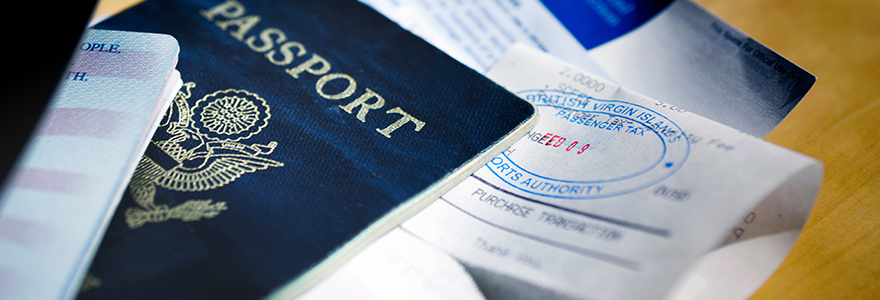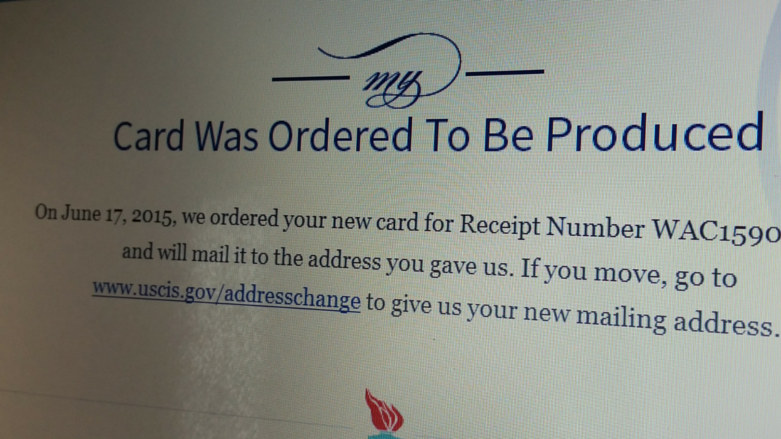
A visa is issued by a U.S. Embassy or Consulate. A visa entitles the holder to travel to the United States and apply for admission; it does not guarantee entry. An immigration official at the port of entry determines the visa holder’s eligibility for admission into the United States. The purpose of your intended travel and other facts will determine what type of visa is required under U.S. immigration law.
Do you need a visa to enter the United States?
Generally, a citizen of a foreign country who wishes to enter the United States must first obtain a visa, either a nonimmigrant visa for a temporary stay, or an immigrant visa for permanent residence. Visitor visas are nonimmigrant visas for persons who want to enter the United States temporarily for business (visa category B-1), ...
What is the purpose of a US visa?
A visa allows a foreign citizen to travel to a U.S. port-of-entry (generally an airport) and request permission to enter the United States. A visa does not guarantee entry into the United States.
Can a visa be denied entry to the United States?
A visa does not guarantee entry into the United States. The Department of Homeland Security (DHS), U.S. Customs and Border Protection (CBP) officials at the port-of-entry have authority to permit or deny admission to the United States.
Who is eligible to visit the United States without a visa?
Tourist or business travelers who are citizens of participating countries may be eligible to visit the United States without a visa. Visits must be 90 days or less, and travelers must meet all requirements.

How often do you update your biographical information on a Chinese passport?
In accordance with the agreement signed between the United States and China to extend visa validity, beginning on November 29, 2016, Chinese citizens with 10-year B1, B2 or B1/B2 visas in Peoples’ Republic of China passports will be required to update their biographical and other information from their visa application via a website every two years, or upon getting a new passport or B1, B2, or B1/B2 visa, whichever occurs first. This mechanism is called EVUS - Electronic Visa Update System.
What happens after a visa interview?
After your visa interview, the consular officer may determine that your application requires further administrative processing. The consular officer will inform you if this required.
What is a visa for a foreigner?
A visa allows a foreign citizen to travel to a U.S. port-of-entry (generally an airport) and request permission to enter the United States. A visa does not guarantee entry into the United States. The Department of Homeland Security (DHS), U.S. Customs and Border Protection (CBP) officials at the port-of-entry have authority to permit or deny admission to the United States. If you are allowed to enter the United States, the CBP official will provide an admission stamp or a paper Form I-94, Arrival/Departure Record. Learn more about admissions and entry requirements, restrictions about bringing food, agricultural products, and other restricted/prohibited goods, and more by reviewing the CBP website.
What does 999 days mean?
A wait time listed as "999 calendar days" indicates that the Consular Section is only providing that service to emergency cases. Please check the Embassy or Consulate website for further information.
How long does a passport need to be valid for a visa interview?
Gather and prepare the following required documents before your visa interview: Passport valid for travel to the United States – Your passport must be valid for at least six months beyond your period of stay in the United States (unless exempt by country-specific agreements ).
What happens if you fail to leave the US on time?
Failure to depart the United States on time will result in being out of status. Under U.S. law, visas of individuals who are out of status are automatically voided ( Section 222 (g) of the Immigration and Nationality Act ). Any multiple entry visa that was voided due to being out of status will not be valid for future entries into the United States.
Where to schedule a visa interview?
You should schedule an appointment for your visa interview at the U.S. Embassy or Consulate in the country where you live. You may schedule your interview at another U.S. Embassy or Consulate, but be aware that it may be more difficult to qualify for a visa outside of the country where you live.
How long is a machine readable visa valid?
The Machine Readable Visa (MRV) fee is valid within one year of the date of payment and may be used to schedule a visa appointment in the country where it was purchased. However, the Department understands, as a result of the pandemic, many visa applicants have paid the visa application processing fee and are still waiting to schedule a visa appointment. We are working diligently to restore all routine visa operations as quickly and safely as possible. In the meantime, the Department extended the validity of MRV fees until September 30, 2022, to allow all applicants who were unable to schedule a visa appointment due to the suspension of routine consular operations an opportunity to schedule and/or attend a visa appointment with the fee they already paid.
What is the priority of consular sections abroad?
The provision of services to U.S. citizens abroad is the first priority of consular sections abroad. With respect to visa services, for consular sections that have the capacity, the processing of immigrant and fiancée visas, particularly for immediate relatives and other family-sponsored applicants, is our highest priority.
What countries are in the Schengen area?
These proclamations, with certain exceptions, place restrictions on visa issuance and entry into to the United States for individuals physically present in China, Iran, Brazil, UK, Ireland, South Africa, and the 26 countries in the Schengen area.
When will the MRV fees be extended?
In the meantime, the Department extended the validity of MRV fees until September 30, 2022, to allow all applicants who were unable to schedule a visa appointment due to the suspension of routine consular operations an opportunity to schedule and/or attend a visa appointment with the fee they already paid.
Do you have a question?
Ask a real person any government-related question for free. They'll get you the answer or let you know where to find it.
What determines the type of student visa you need?
Your course of study, the school you plan to attend, or the exchange program you will be with will determine the type of student visa you will need.
What is ESTA in travel?
Fill out the (ESTA) online application. ESTA determines the eligibility of a visitor to travel to the U.S. under the VWP.
What is an F-1 visa?
F-1 visa classification is for a full-time international student pursuing academic studies.
What is transit C visa?
Transit C visa classification is for foreign nationals traveling through the U.S. to another country and stopping briefly in the U.S. as part of their travel to the next foreign destination.
What happens if you violate your work visa?
If you violate the terms of your work visa, it could be revoked. You could be deported, arrested, or denied re-entry into the U.S.
Can an international student apply for a student visa?
An international student can apply for a student or exchange visitor visa only after being accepted by a school certified in the Student and Exchange Visitor Program (SEVP). Students’ records are kept in the Student and Exchange Visitor Information System (SEVIS). Learn more about SEVP and SEVIS, and about the SEVIS fee.
How much does an ESTA visa cost?
ESTA has an application fee of $ 4, and if approved, an additional fee of $10 is charged.
What is the presumption of a nonimmigrant visa?
The presumption in the law is that every nonimmigrant visa applicant (except certain employment-related applicants, who are exempt) is an intending immigrant unless otherwise proven. Therefore, applicants for most nonimmigrant visas must overcome this presumption by demonstrating that:
How many S visas can a witness get?
S visas are nonimmigrant visas issued to individuals who have assisted law enforcement as a witness or informant. There is a limit of 200 S visas a year. A law enforcement agency can then submit an application for resident alien status, i.e. a green card on behalf of the witness or informant once the individual has completed the terms and conditions of his or her S visa.
How many countries are included in the Visa Waiver Program?
As of 2021, 39 countries have been selected by the U.S. government for inclusion in the Visa Waiver Program (VWP). Their nationals do not need a U.S. visa for short stays, but they are required to obtain an electronic authorization (ESTA) for arrivals by air or sea. Visitors may stay for up to 90 days in the United States, which also includes time spent in Canada, Mexico, Bermuda or the islands in the Caribbean if the arrival was through the United States.
What is the adjusted refusal rate for a B visa?
The Adjusted Refusal Rate is based on the refusal rate of B visa applications. B visas are adjudicated based on applicant interviews; the interviews generally last between 60 and 90 seconds. Due to time constraints, adjudicators profile applicants. Certain demographics, such as young adults who are single and unemployed, almost never receive visas, unless they articulate a compelling reason. Adjudicators are evaluated on how fast they carry out interviews, not the quality of adjudication decisions. The validity of B visa decisions is not evaluated.
What is the visa policy of the United States?
The visa policy of the United States consists of the requirements for foreign nationals to travel to, enter, and remain in the United States. Visitors to the United States must obtain a visa from one of the U.S. diplomatic missions unless they come from one of the visa-exempt or Visa Waiver Program countries.
When did the H-1A visa end?
The discontinued H-1A and H-1C visas existed during periods when the US experienced a shortage of nurses from 1989. The H-1A classification was created by the Nursing Relief Act of 1989 and ended in 1995. The H-1C visa was created by the Nursing Relief for Disadvantaged Area Act of 1999 and expired in 2005. Currently nurses must apply for H-1B visas.
Visa Bulletin Final Action Dates
The lists below are updated annually. Please refer to the Visa Bulletin page for final action dates established during the current fiscal year or the archive section on that same page for past Visa Bulletins.
Multi-Year Reports
For more multi-year reports, please select a Report of the Visa Office.
